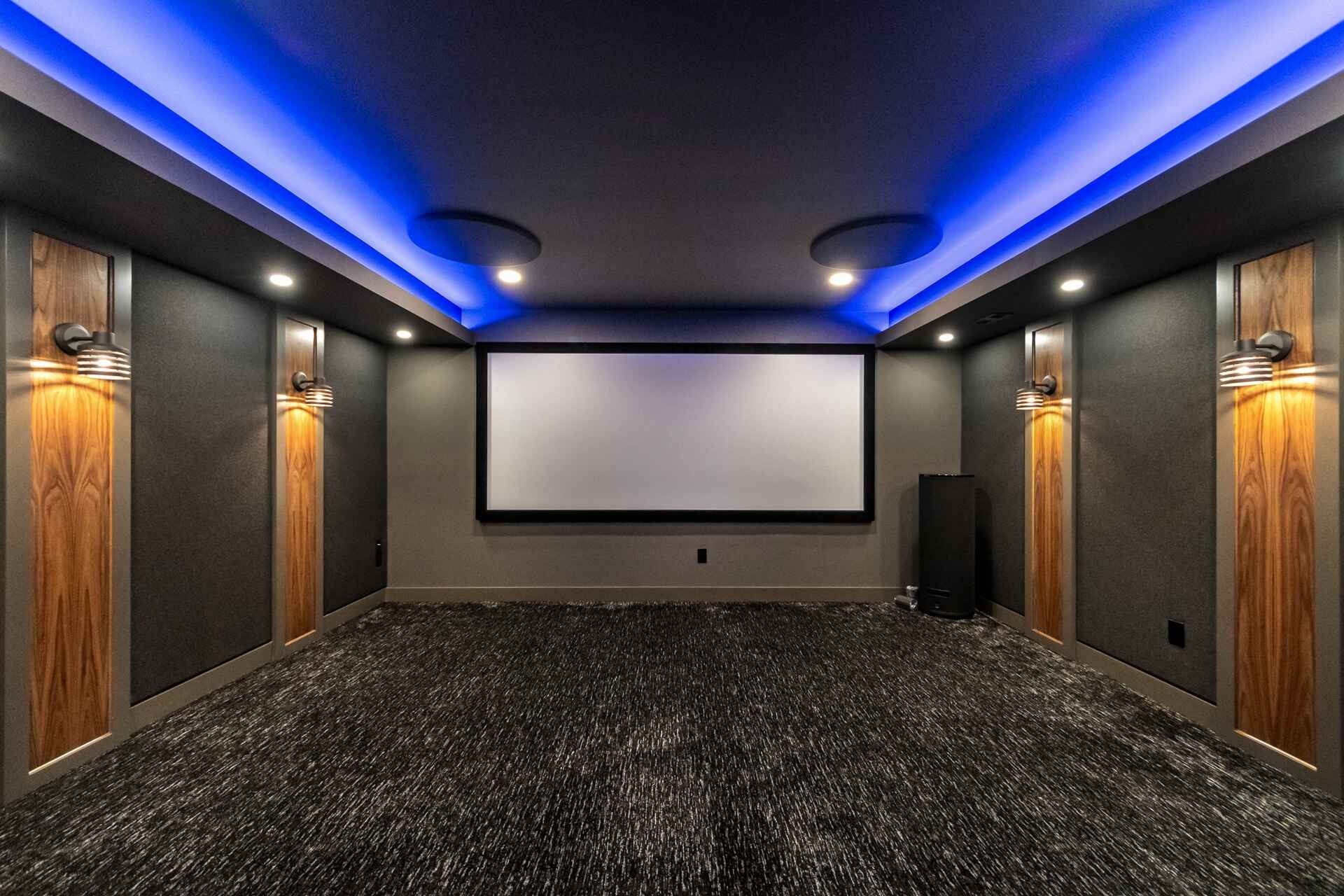When we design wine cellars for serious collectors in McLean or Potomac, we're not talking about a wine fridge in the corner. These are temperature-controlled, humidity-regulated environments with custom racking for 500-2,000+ bottles, glass-enclosed displays that rival Napa tasting rooms, and dedicated spaces where you can host tastings that make your wine-obsessed friends jealous.
What luxury wine cellars include:
Commercial-Grade Climate Control ($8,000-$20,000)
Your wine collection is only as good as the environment storing it. Luxury cellars require commercial-grade systems from WhisperKOOL or Wine Guardian maintaining precise 55-60°F temperatures and 60-70% humidity year-round. Split systems separate the noisy condenser from your cellar entirely. The evaporator stays inside while the condenser lives in a mechanical room, creating a vibration-free, whisper-quiet environment. Premium systems include liquid probe thermometers monitoring actual bottle temperature, sophisticated room correction, and remote monitoring via smartphone apps.
Custom Racking Systems ($12,000-$50,000)
This is where your cellar's personality emerges. Traditional wood racking in mahogany or walnut creates that Old World European aesthetic. Modern metal systems from VintageView offer label-forward displays where bottles float on walls like gallery art. Many luxury cellars combine both—wood for bulk storage, metal for statement walls displaying the best vintages. Custom configurations include individual bottle storage, case bins, presentation rows, specialized racks for magnums, and even motorized pull-down systems for accessing high storage. The racking isn't just storage—it's the architectural centerpiece.
Glass Enclosures ($8,000-$25,000)
Professional cellars showcase collections through frameless glass walls and doors from companies like MAIDEN Steel. These aren't standard sliding doors—they're architecturally sealed, insulated dual-pane systems maintaining perfect climate control while creating jaw-dropping visual impact. Many incorporate integrated LED lighting within glass frames or backlighting for dramatic effect. The goal is to make your collection living, breathing art that's visible from entertainment spaces while maintaining precise environmental control inside.
Proper Insulation & Vapor Barriers ($5,000-$12,000)
You can't see this work, but it determines whether your cellar actually functions. Proper cellars use closed-cell spray foam, creating R-19+ values on all six sides—walls, ceiling, and floor. Vapor barriers prevent moisture migration. Every penetration point gets sealed. Without pharmaceutical-grade environmental isolation, your $15,000 cooling system fights a losing battle.
The Tasting Room Experience ($15,000-$40,000)
Luxury cellars aren't just storage—they're destinations. Proper tasting areas include handcrafted tables made from wine barrel staves or reclaimed wood, upholstered seating in leather or rich fabrics, stemware storage with overhead racks protecting your Riedel collection, and wet bars with wine preservation systems like Coravin. Lighting design layers ambient, task, and accent illumination with dimmable LEDs for mood, pendant lights over tasting tables, and integrated lighting highlighting special bottles. Many add sound systems, smart home controls, and displays showing vineyard maps or tasting notes.
The Details That Matter
Luxury cellars incorporate stone or engineered wood flooring handling temperature fluctuations, walls in natural stone or custom millwork with integrated storage, barrel-vaulted ceilings adding drama, and digital inventory systems tracking every bottle's location and optimal drinking window. Some add separate temperature zones for Champagne storage, UV-free display lighting, specialized storage for verticals or horizontals, cigar humidors, or even biometric security.
Reality Check: A $100,000 wine cellar sounds absurd until you calculate what you're protecting. If you're seriously collecting—buying futures, investing in rare vintages, building a cellar that will appreciate over decades—proper storage isn't a luxury, it's a necessity. A $50,000 collection stored poorly becomes $10,000 of vinegar. But here's the truth: if you're buying $15 wines at Costco and finishing bottles within months, this makes zero sense. If you're hosting regular tastings, if your collection has reached the point where tracking becomes challenging, if you've stood in a Napa cellar and thought "I want this at home," then a luxury wine cellar transforms from indulgence to essential infrastructure. Just make sure you're actually drinking the wine, not just collecting it.


